DISCLOSURE: VT condemns the horrific tragedy committed by the NAZI Party against Jewish Citizens of Europe during Word War II known as the "Holocaust". VT condemns all racism, bigotry, hate speech, and violence. However, we are an open source uncensored journal and support the right of independent writers and commentors to express their voices; even if those voices are not mainstream as long as they do NOT openly call for violence. Please report any violations of comment policy to us immediately. Strong reader discretion is advised.
“Whoever takes it upon himself to write an honest intellectual history of twentieth-century Europe will need a strong stomach. But he will need something more. He will need to overcome his disgust long enough to ponder the roots of this strange and puzzling phenomenon.” Mark Lilla
by Jonas E. Alexis
Arguably the most notorious and controversial historian of our time is David Irving, who has been called “anti-Semite,” a “neo-Nazi,” a “racist,” and a “Holocaust denier.” Former news anchor and political commentator Keith Olberman nominated Irving as one of the “world’s worst” people in 2010. [2]
Michael Shermer and Alex Grobman call him “the most historically sophisticated of the [Holocaust] deniers.”[3] Richard J. Evans, a historian who was a witness at the Holocaust trial, denounces Irving’s writing as
“completely worthless as history, because Irving cannot be trusted anywhere, in any of them, to give a reliable account of what he is talking or writing about…if we mean by historian someone who is concerned to discover the truth about the past and to give as accurate a representation of it as possible, then Irving is not a historian.”[4] (Before the trial, however, Evans praised Irving for digging up valuable materials from the archive.) The ADL calls Irving “one of the most best known Holocaust deniers in the world.”[5]
Other historians disagree with the common opinion. Military historian Sir John Keegan called Irving’s Hitler’s War “certainly among the half dozen most important books.”[6] Keegan admits, however, that Irving is a controversial figure “who currently champions extreme right-wing politics in Europe. Nonetheless, he is a historian of formidable power, having worked in all major German archives, discovered important deposits of papers himself, and interviewed man of the survivors or their families and intimates.” [7]
Keegan moves on to say, “No historian of the Second World War can afford to avoid Irving.” [8] Irving’s biography of Goring, says Keegan, is “the most illuminating” [9] among historical books.
In 1977, noted British historian Hugh Trevor-Roper, though questioning Irving’s motives, wrote that “no praise can be too high for his [Irving’s] indefatigable, scholarly industry.”[10] Other historians such as Paul Addison, John Charmley, and Rainer Zitelmann, praised Irving’s work, although they do not like some of the positions he has taken.
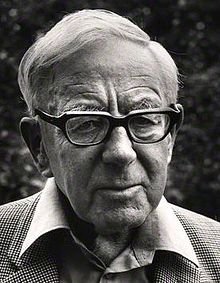
Noted British historian A. J. P. Taylor wrote that Irving possessed “an unrivaled industry” and a “good scholarship”[11] when it comes to decoding the archives to see what the records actually say. British historian Paul Addison likewise noted that Irving possesses a “colossus of research,”[12] while at the same time taking issues with him on other matters.
Some historians seem to have some animosity towards Irving precisely because Irving is not like the typical historian who would posit extraordinary claims without serious evidence from the archives. Like Gollum who hates the ring of power and loves it at the same time in J. R. R. Tolkien’s The Lord of the Rings, some historians love Irving but hate him because he gives them a hard time.
This point is demonstrated by historian Peter Hoffman, who said:
“Mr. Irving’s constant references to archives, diaries, and letters, and the overwhelming amount of detail in his work, suggest objectivity. In fact, they put a screen behind which a very different agenda is transacted… Mr. Irving is a great obfuscator…Distortions affect every important aspect of this book to the point of obfuscation… It is unfortunate that Mr. Irving wastes his extraordinary talents as a researcher and writer on trivializing the greatest crimes in German history, manipulating historical sources, and highlighting the theatrics of the Nazi era.”[13]
One of the people who found David Irving’s work anti-Semitic, however, is Deborah Lipstadt, who also accused him of being a “Holocaust denier.”

Lipstadt, whose greatest intellectual and historical achievement is to call everyone who fundamentally disagrees with her on aspects of the Holocaust a “Holocaust denier,” tells us in her book History on Trial that John Lukacs and Charles Sydnor challenged Irving on his use of sources and found them inaccurate.[14]
But saying some sources are inaccurate and documenting where the inaccuracies lie is a big problem for Lipstadt. She does not tell us where Lukacs and Sydnor found Irving’s sources as “pretentious twaddle”[15] at all. One is asked to take their words at face value.
If that is the case, then one is surely justified in taking Raul Hilberg’s comment on David Irving as well. Hilberg noted: “If these people want to speak, let them. It only leads those of us who do research to re-examine what we might have considered obvious. And that’s useful for us.”[16]
Noted economic historian Robert Higgs came to similar conclusions, believing that historical revisionism can stimulate healthy discussion precisely because historians are always looking for more evidence in order to give an accurate or more consistent account of the past.[17]
Although several aspects of Hilberg’s history of the Holocaust are questionable, as we shall demonstrate in a future article, he indeed was willing to be open-minded at least here in this assertion. Similarly, Jewish scholars such as Murray Rothbard saw “revisionism” as a healthy and skeptical way to approach history—not because revisionists want to rewrite history and shape it in their own way, but because historical evidence must be presented for extraordinary claims.[18]
However, the Holocaust has become a sacred cow, so much so that even debating certain aspects of it may be considered anti-Semitic. As Jewish historian, Paula Hyman of Yale pointed out in a 1980 New York Times article,
“With regard to Israel, the Holocaust may be used to forestall political criticism and suppress debate; it reinforces the sense of Jews as an eternally beleaguered people who can rely for their defense only upon themselves. The invocation of the suffering endured by the Jews under the Nazis often takes the place of rational argument, and is expected to convince doubters of the legitimacy of current Israeli government policy.”[19]

But evidence and logical argument do not seem to be the goal for Lipstadt. She excels at summoning ad hominem arguments and dismantling them with great relish. In the arena of ideas, it seems that historical documentation and logical consistency do not matter much.
An easy way to disarm your opponent is to call him names: anti-Semite, Holocaust denier, neo-Nazi, etc. Once she convinced the media that Irving is indeed a “Holocaust denier” and an anti-Semite, then no one would bother to read Irving’s books to examine them for their evidentiary foundations—or lack thereof.
More importantly, any historian who even has the slightest doubt about Lipstadt’s version of the Holocaust has to be an anti-Semite.[20] In a letter she sent to the New York Times, she insinuated that Irving should not be referred to as a historian but a Holocaust denier[21]–although Irving has written at least 30 books on World War II and Lipstadt only four.
Lipstadt’s tactic is quite cheap, but it is not a surprise, since this has been one of the ideological weapons of the Holocaust establishment. Some of the terms the Holocaust establishment used—such as “anti-Semitism,” “Holocaust denier,” “history denier,” haters of Jews”—are pronounced so vaguely by so many people that when one examines the logical and historical depth and breadth of those words and the people who invoke them, they turn out to be void of empirical evidence.
Michael Shermer and his co-author Alex Grobman begin their book with the assertion that Ernst Zundel claimed that “the Holocaust never happened.”[22] The Encyclopedia of the Holocaust declares that holocaust denial, among other things “Denying the Holocaust includes attempts to deny the fact that the extermination of the Jews by the Nazis ever took place,” “the tendentious and trivializing claim that the Holocaust was not unique and that there had been precedents, even precedents that had served as models for the Holocaust.”[23] Even claims that “Jewish losses have been grossly exaggerated”[24] may be labeled Holocaust denial.
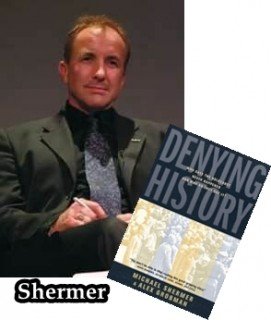
Shermer and his co-author know very well that “Holocaust deniers” do not deny the Holocaust. In fact, back in 1998 (long before Shermer got involved in writing Denying History), Mark Weber, director of the Institute for Historical Review, wrote in the L.A. Times:
“Revisionist scholars do not ‘deny’ the Holocaust. They acknowledge that many hundreds of thousands of Jews were killed and otherwise perished during the Second World War as a direct and indirect result of the brutally anti-Jewish policies of Germany and its allies.”[25]
Weber continued to say, “Since its founding in 1978, the IHR has steadfastly opposed bigotry of all kinds in its efforts to promote greater public understanding of key chapters of history.”[26]
In a similar vein, David Irving declared in a speech that “there is no doubt at all that the Nazis in their twelve-year rule inflicted nameless horrors on a large segment of the population, including the Jews and other people, whom they disliked.”[27]
Irving even goes so far as to say that the horrors that happen during World War II on both sides of the equation should be named “innocenticide—the killing of innocent people in war….I am not Jewish, I am not anti-Jewish, and I am not an anti-Semite.”[28]
What is even more interesting is that Shermer debated Weber on this issue and continued to misrepresent “Holocaust deniers” in his book! Moreover, Shermer never mentioned the debate in the book.[29] We will deal with Shermer’s Denying History in more detail in future articles, but let us make a few points here.
No one is claiming that Jews weren’t persecuted by Nazi Germany. What serious person would dispute that historical fact? What some historians are trying to emphasize, however, is:
1) than other ethnic groups were also persecuted in Nazi Germany;
2) that Hitler did not intend to exterminate the entire Jewish people from Europe, but intended to use forced migration;
3) that there were individuals of Jewish descent in Nazi Germany—and Hitler knew it;
4) that Nazi Germany is one crime in history and there are others that seem to be worse than the Third Reich;
5) that the “six million killed” figure is inflated; and
6) the claim that Jews were gassed in gas chambers is false.
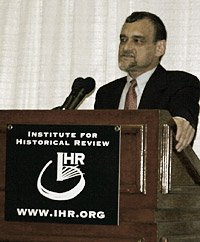
Moreover, Michael Shermer and his co-author examine the Holocaust in a way that brings up more questions than it lays to rest. For them, anyone who dissents from the view that at least five to six million Jews died at the hands of Nazi Germany is a Holocaust denier. Shermer implicitly reiterated that point when the Denying History came out.[30]
For them, anyone who questions that people were gassed in concentration camps is a Holocaust denier. These two premises are essential to the Holocaust establishment. One can say with a high degree of certainty that they are the bible to the establishment.
In other words, if those promises turn out to be false, then the Holocaust establishment has nothing to stand upon. Moreover, it seems that a person is a Holocaust denier whenever he does not ally with the Holocaust establishment. Even Ernst Zundel, to my knowledge, never denied that Jews suffered and died at the hands of Nazi Germany. What he questions is “did six million really die?”
If we take Jewish historians such as Yehuda Bauer or Gerald Reitlinger or even Raul Hilberg at their words, the answer to Zundel’s question is no.
Anyone with an ounce of historical sense would admit that Jews, as well as homosexuals and Jehovah’s Witnesses and Catholics and Protestants, suffered under Nazi Germany. This point is certainly not in question. The question that is controversial, as we shall see in subsequent articles, is the six-million figure.
Jewish military historian Joel S. Hayward (Head of Air Power Studies at King’s College), while he does not espouse all of Irving’s work, wrote a lengthy letter praising Irving for his historical documentation. I have placed the letter in the footnote.[31]
Either all those historians who have praised Irving are self-deluded, deceivers, or they believe that Irving has something to say. Moreover, the closer one can get to archival documents, the closer one can get to the truth of what happened in history. Not all historians immerse themselves in the archival data, but laboriously quote the opinions of other historians in order to preserve a widely held belief.
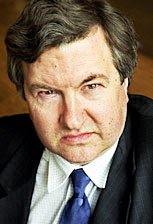
Here is a classic example. In his widely read book The Third Reich at War, Richard Evans for example declares that “As soon as the German forces had entered the Soviet Union and the various territories it controlled, followed by the four SS Security Service Task Forces and subordinate Task Units including a number of police battalions, they had begun to carry out the orders Heydrich had given them to kill civilian resisters, Communist Party officials and Jews, along with all Jewish prisoners of war, in order, as they thought, to eliminate any possibility of resistance or subversion from ‘Jewish Bolsheviks.’”[32]
As a Cambridge historian, Evans ought to be able to go to the archives and tell us where to find the documents backing up these extraordinary assertions. Instead, he is quoting the opinions of Jewish historians such as Saul Friedlander and Alfred Steim. Irving would not question Evans as a historian, but David would say that historians best serve the public and historical inquiry by backing up their claims with archival documents.
As the noted Italian philosopher and historian, Benedetto Croce wrote decades ago, “documents and criticism, life and thought, are the true source of history, that is to say, the two elements of historical synthesis…they form a constituent part of it and are constituted by it. Hence the idea of history with its sources outside itself is another fancy to be dispelled, together with that of history being the opposite of chronicle.”[33]
What I have seen over the years is that there is a lack of self-criticism among the Holocaust establishment; many do not ask deeper questions or search for evidence for existing claims. History does not work that way.
I was hoping that Shermer and his co-author Grobman would challenge Irving’s main thesis in books such as Hitler’s War, Churchill’s War, etc. Instead, Denying History had very little interaction with Irving’s central themes. Like Deborah Lipstadt, Michael Shermer believes that “Holocaust deniers” are anti-Semites!
When he was asked the question “Why do you think that people deny the Holocaust then?,” Shermer responded, “I think it really is mostly anti-Semitism, the belief in the inordinate amount of power that Jews allegedly have in the world. It’s a certain amount of just basic tribalism.”[34]
What probably classifies Irving as a “Holocaust denier” is that he does not generally follow the mainstream historian’s pattern of quoting his peers without historical backbones. If you are going to make an extraordinary claim, Irving insists on seeing it documented by primary sources rather than the opinions of like-minded historians.
For Irving, a healthy skepticism is required about any claim regarding World War II, since the Germans were obsessed with papers. “I am a thorn in the side of certain people who have a vested interest in propagating their own version of history,” which “has become big business,” he said.>[35] Irving calls those people “the traditional enemy of the truth.”>[36]
Why has Irving man stood by his views all these years? Why haven’t Lipstadt and others disproved him wrong in all his major views? It is because Irving goes by the archives. He declared, “What is it that distinguishes my books from all the rest?… I write my books from the archives…why is it that other historians get mad as hell when they hear my name? Why is it that they cheer when I get thrown into prison…no court hearing, no trial?”>[37]
Primary sources, as critical historians have shown us, are the most reliable evidence for extraordinary claims that purport to be historical.>[38] Irving pursues that traditional method, which was followed by celebrated historians such as V. H. Galbraith, who believed that “the principal value of studying history lay in a direct encounter with the primary sources; by comparison, the interpretations of historians were fundamentally transient.”>[39]
Irving continued to say that many historians
“rely on second-hand sources, which you can get away with….What did Hitler know about Auschwitz? ‘Of course, he knew, he was the one who gave the order.’ And I said, ‘What’s the evidence?’ Professor [X] says that I had it from professor [Y]. Professor [Y] says that I had it from professor [Z]. Professor [Z] says I had it from professor [X]. So the circle is complete. They’ve all been quoting each other like dogs running around a circle…The world’s historians are ashamed of David Irving—and they should be ashamed.” [40]
Irving is not against secondary sources, for information of course could be gleaned from those sources. However, he is against authoritative statements without extraordinary evidence.
Regardless of what you think about the man, he is right in line with the Western tradition in digging into the archives. Moreover, you put him behind bars today (hoping that he will change his mind) and he comes right back, fresh and ready to fight against what he calls “the traditional enemy of the truth.”
O Irving, Where Are Thy Credentials?
The point is also brought up that Irving cannot be considered a professional historian since he does not have an academic degree; although Irving was a student at the University of London, he never completed his education due to financial difficulties.
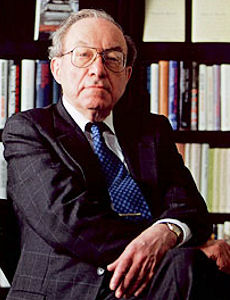
Hayward also raised the point that if we are going to dismiss Irving of his lack of an academic diploma, then we are in deep trouble. The fact is that although some historians have degrees in their field, many do not. Raul Hilberg has a B.A. in political science, an M.A., and a doctorate in Public Law and Government.
Michael Shermer has his Bachelor’s in psychology, his Master’s in experimental psychology, and his doctorate in the history of science, not in the history of World War II. His doctoral thesis was “Heretic-Scientist: Alfred Russell Wallace and the Evolution of Man: A Study on the Nature of Historical Change,” which later was published as a book entitled, In Darwin’s Shadow: The Life and Science of Alfred Russel Wallace.
Benjamin A. Valentino’s B.A. and Ph.D. degrees are in political science, yet he wrote the popular book Final Solutions: Mass Killing and Genocide in the Twentieth Century. R. J. Rummel’s B.A., M.A., and Ph.D. degrees are all in political science, yet many of his books focus on genocide in the twentieth century. Daniel Jonah Goldhagen’s B.A. degree is in social studies, and his M.A. and Ph.D. degrees are in Government.
Thus, according to the fallacious standards used by those critics, Shermer is not qualified to write Denying History. Neither are Rummel, Valentino, or Hilberg. The argument is untenable and demonstrably ridiculous.
As we have implicitly established in the previous article, the power of an idea does not lie in the degrees a person may have accumulated for himself but must rely on historical accounts, logical consistency, explanatory power, explanatory scope, and historical context. There have to be external checks and balances in history (as in science) that are not contingent on the credentials of the scientist or historian. [41] Historians must stay away from ad hoc hypotheses and red herring as much as possible.[42]
While one should always appreciate a person’s field or fields of study, one should never underestimate the power of a worldview and should always be skeptical about alternative views, pressing proponents of those views to back up their claims with empirical data. Put simply, the refutation of an argument cannot solely be contingent upon one’s credentials.
Michael Faraday, a chemist, and physicist who contributed greatly to the field of electromagnetism had very little formal education. Charles Darwin’s only degree was in theology; he studied the sciences in his spare time, but he never got a degree in any scientific field.
Alfred Russell Wallace, the man who was the basis of Shermer’s Ph.D. thesis, never got a degree whatsoever. Charles Lyell, one of the men who revolutionized the understanding of the age of the earth with his Principles of Geology, got his B.A. degree in classics. He studied geology intensively after he became a lawyer but again he never got a degree in the sciences. Even Stephen Jay Gould acknowledges that “Charles Lyell was a lawyer by profession.”[43]
James Hutton was not trained in geology, but in medicine and agriculture; he is known today largely for his theoretical model in the field of geology. Herbert Spencer, who coined the term “survival of the fittest,” was a self-taught engineer.[44]
In our time, Thomas Sowell was trained as an economist, having bachelor’s, master’s, and Ph.D. degrees in the field. Yet today is widely known as a social theorist, a political philosopher, a cultural and intellectual historian, etc. Barbara Tuchman was a self-taught Jewish historian.
The question at hand is quite simple: can we use the fallacious argument that these people ought to be dismissed simply because they never had a formal degree in their particular field? Is the degree more important than reasonable arguments and evidence?
This article was first published on June 5, 2013.
[1] Mark Lilla, The Reckless Mind: Intellectuals in Politics (New York: New York Review of Books, 2001), 198.
[2] “Keith Olbermann’s ‘Worst Person’ – David Irving,” www.youtube.com, 09/16/10.
[3] Michael Shermer and Alex Grobman, Denying History, 49.
[4] Richard J. Evans, “David Irving, Hitler and Holocaust Denial: Electronic Edition,” Holocaustdenialontrial.org.
[5]http://www.adl.org/learn/ext_us/irving.asp?LEARN_Cat=Extremism&LEARN_SubCat=Extremism_in_America&xpicked=2&item=irving
[6] D. D. Guttenplan, The Holocaust on Trial (New York: W. W. Norton & Company, 2002), 1.
[7] John Keegan, The Battle for History (New York: Vintage Books, 1995), 50.
[10] Deborah Lipstadt, History on Trial: My Day in Court with a Holocaust Denier (New York: HarperCollins Publishers, 2005), 23.
[13] Quoted in Richard J. Evans, Lying about Hitler: History, the Holocaust, and the David Irving Trial (New York: Basic Books, 2001), 11.
[14] Lipstadt, History on Trial, 23
[16] Quoted in Norman Finkelstein, The Holocaust Industry, 71.
[17] Robert Higgs, “Why Do So Many People Automatically and Angrily Condemn Historical Revisionsim?,” History News Network, December 8, 2011.
[18] Murray N. Rothbard, “Revisionism for our Time,” Ludwig von Mises Institute, June 29, 2007.
[19] Paula Hyman, “New Debate on the Holocaust,” NY Times, September 14, 1980.
[20] Deborah Lipstadt, Denying the Holocaust: The Assault on Truth (New York: Penguin Books, 1994), 215.
[21] Deborah Lipstadt, “Those Who Deny the Holocaust Deny History,” N Y Times, March 4, 2009.
[22] Shermer and Grobman, Denying History, 1.
[23] Israel Gutman, “Denial of the Holocaust,” Israel Gutman, ed. The Encyclopedia of the Holocaust (New York: Macmillan Publishing Company, 1990), 681-682.
[25] Mark Weber, “Revisionists and the Holocaust,” LA Times, March 15, 1998.
[27] https://www.youtube.com/watch?v=jgGP_evkvOk.
[29] The debate can be viewed on Youtube: https://www.youtube.com/watch?v=8PGhHMTbhTY.
[30] http://hdot.org/en/learning/podcasts/shermer.
[31]Hayward said, “I HAVE READ the discussion on Irving with great interest. As a professional historian who has written a lot about Holocaust Revisionism in general and Irving in particular (and plenty on WW2), I can speak with some confidence about the issues raised….It is certainly true he never completed his Bachelor’s degree at the University of London (where he read Physics), let alone completed a post-graduate degree or Doctorate. It is also true that he has never held a university position. However, if those grounds are sufficient to call his scholarship into question, then they must also call into question the scholarship of almost all the important and influential writers of Holocaust history from the 1950s, 1960s and 1970s, upon which supporters of received opinion on the Holocaust still rely. For example, the late Gerald Reitlinger, author of the very influential and still-cited ‘The Final Solution: the Attempt to Exterminate the Jews of Europe’, was an art dealer with no academic qualifications. Yet Reitlinger’s book had a profound impact on both scholarly and popular perceptions of what happened to Eastern European Jews. A number of those still writing on the Holocaust also lack the ‘proper’ credentials. Georges Wellers, a prominent French writer on the Holocaust and a bitter opponent of Revisionism, is the former director of a medical research laboratory. He has no historical training. Jean-Claude Pressac, the author of several ‘seminal’ books on the Auschwitz gas chambers, has a diploma in pharmacy but no historical training whatsoever. Walter Laqueur, former Kibbutznik and author of many well-received and best-selling books on the Holocaust and modern European history, maybe an academic icon in Israel (the Jerusalem Post has produced glowing full-page feature articles on him, for instance), and he may head his own institute and edit his own journal, but he has never completed a university degree. Clearly, if Irving is unworthy of the title ‘historian’, then these Holocaust writers (none of whom has written anywhere the number of books Irving has) are also unworthy. If Irving’s works are to be discounted or treated with unusual circumspection because of his lack of formal credentials, then so are theirs. Do Irving’s highly-partisan critics care that their own favorite historians of the Holocaust lack ‘legitimacy’; that, like Irving and his ilk, they are not ‘real’ historians?
“OF COURSE, titles and qualifications mean little, as I wish Irving’s critics would realize. An author’s degree of formal historical training and position within the academic world is unimportant if he or she has employed sound methodological principles. Countless excellent works have been written by so-called ‘amateurs’ whose careful and systematic piecing together of evidence has cast new light on their objects of inquiry. University-dropout Laqueur, one of my favorite historians, is a case in point. His scholarship is usually terrific and I buy most books he writes…Further, in the course of my doctoral and subsequent research on aspects of Third Reich history, I worked in or obtained documents from several of the archives frequented by Irving, including the Bundesarchiv in Koblenz, the Bundesarchiv-Militärarchiv in Freiburg im Breisgau, the Dokumentationsarchiv des oesterreichischen Widerstandes in Vienna, the National Archives in Washington and the United States Air Force Historical Research Agency. I have thus been able to check his sources and the way he used them. Therefore, I can say with confidence that I am as well-positioned to comment on Irving’s scholarship as anyone. My judgement: I certainly don’t agree with all his arguments and conclusions, and strongly disagree with some, but I can’t find serious flaws in his methodology and I have never found a single example of deliberate falsification of evidence. Yes, I have studied all the books and articles that attempt to prove that he has fiddled with sources, but they are generally weak and unpersuasive, reflecting the authors’ own biases, preconceptions and, saddest of all, lack of familiarity with the documents they purport to analyse. Deborah Lipstadt’s book is hopeless. Very poor indeed. Gerald Fleming’s Hitler und die Endloesung; Es ist des Führers Wunsch (revised ed., 1992?) is easily the best of the anti-Irving books, but even that ultimately fails to prove falsification or improper consideration of the evidence. Regardless of his attention-seeking antics and his tendency to say dumb, insensitive, and sometimes inaccurate things to the media (which don’t appear in his books, thank goodness), Irving is a researcher, biographer, and military historian of outstanding aptitude. Many of his works are excellent. (By the way, none of them is specifically on the Holocaust or even deals with it at length.)” Joel S. Hayward, “David Irving, the Third Reich, and the Holocaust,” letter published by David Irving in 1998.
[32] Richard J. Evans, The Third Reich at War, 1939-1945 (New York: Penguin Books, 2008), 218.
[33] Benedetto Croce, Theory and History of Historiography (Toronto: The University of Toronto Libraries, 2011), introduction.
[34] http://hdot.org/en/learning/podcasts/shermer.
[35] https://www.youtube.com/watch?v=jgGP_evkvOk.
[38] See for example Jenny L. Presnell, The Information-Literature Historian (New York: Oxford University Press, 2007), 5.
[39] John Tosh, Historians on History (London: Pearson Education Limited, 2009), 19.
[40] https://www.youtube.com/watch?v=bwp7tVZuXKM.
[41] For an exposition on this, see Peter Lipton, Inference to the Best Explanation (New York: Routledge, 2004).
[42] Christopher Behan McCullagh, Justifying Historical Descriptions (New York: Cambridge University Press, 1984); Martha C. Howell and Walter Prevenier, From Reliable Sources; Jenny L. Presnell, The Information-Literature Historian: A Guide to Research for History Students (New York: Oxford University Press, 2007); Kathleen Troup and Anna Green, ed., The Houses of History: A Critical Reader in Twentieth-Century History and Theory (Manchester: Manchester University Press, 1999); Benedetto Croce, Theory of History and Historiography (Toronto: The University of Toronto Libraries, 2011).
[43] Stephen Jay Gould, Ever Since Darwin (New York: W. W. Norton & Company, 1977), 149-150.
[44] For a biography of Spencer, see for example David Duncan, Life and Letters of Hebert Spencer (London: Methuen and Company, 1908).
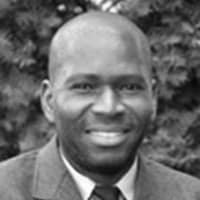
Jonas E. Alexis has degrees in mathematics and philosophy. He studied education at the graduate level. His main interests include U.S. foreign policy, the history of the Israel/Palestine conflict, and the history of ideas. He is the author of the new book Zionism vs. the West: How Talmudic Ideology is Undermining Western Culture. He teaches mathematics in South Korea.
ATTENTION READERS
We See The World From All Sides and Want YOU To Be Fully InformedIn fact, intentional disinformation is a disgraceful scourge in media today. So to assuage any possible errant incorrect information posted herein, we strongly encourage you to seek corroboration from other non-VT sources before forming an educated opinion.
About VT - Policies & Disclosures - Comment Policy



